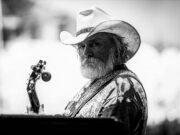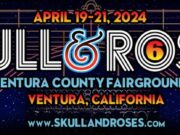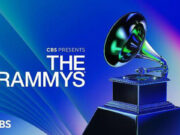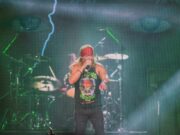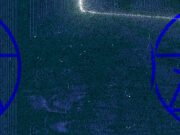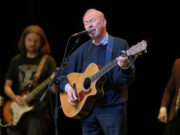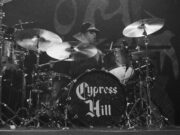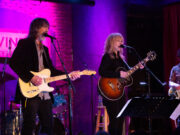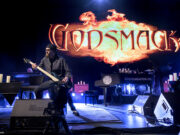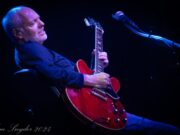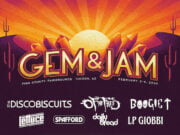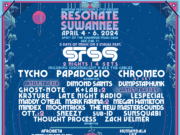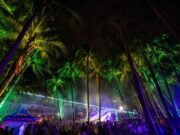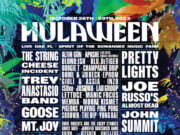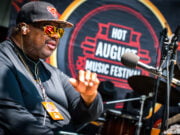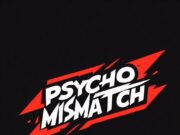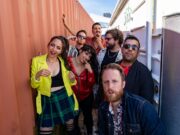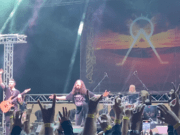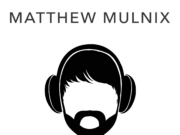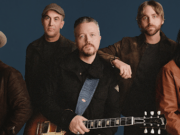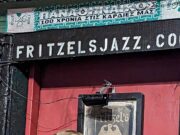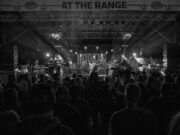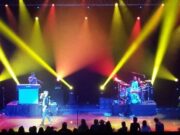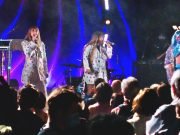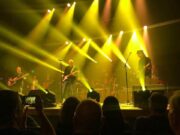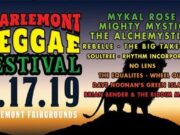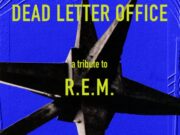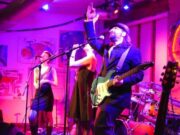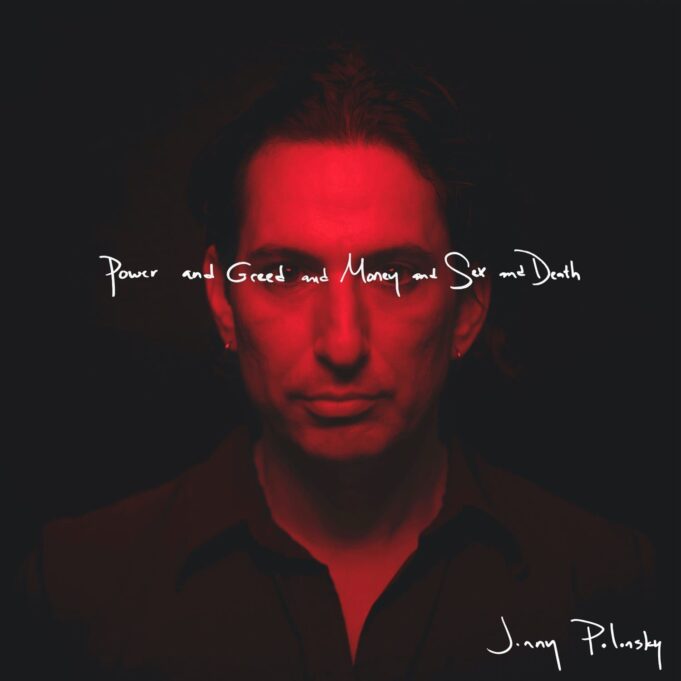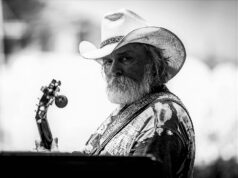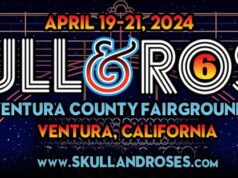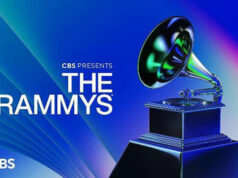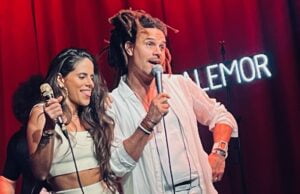Power and Greed and Money and Sex and Death Out November 13
“With these songs, I wanted to be as bold and stark and in your face as possible,” Jonny Polonsky says about his bold new album, which more than lives up to his description. “I wanted the vocals really loud and dry, so that you can understand all the words. I wanted it to feel kind of like an avalanche. To me, that’s what it’s like out in the world these days – overwhelming and intense. That’s what the title is about, too.”
Live Music News and Review.com is pleased to premier Jonny Polonsky’s new single, In Between Worlds.
Indeed, the title alone is a big swing: Power and Greed and Money and Sex and Death, due out November 13 on Ghostworks Recordings. “It just popped in my head, and I wrote it down and just started laughing,” he says. “That’s always a good sign. Like, ‘I can’t possibly say that’ – but I want to. So that’s the title.” The title and the album’s roiling energy reflect its origins amid the frightening COVID-19 lockdown and the social upheavals that have erupted as the result of shocking recent incidents of police brutality amid a brawling election season.
Check out the song Summer Soldiers featuring Go Go’s Jane Wiedlin:
Polonsky had just returned home to Brooklyn after two weeks of dates in Europe – and the filming of a documentary — just before the release of his album Kingdom of Sleep, which came out in early March. New York had just emerged as the epicenter of the pandemic and the city shut down hard. “It was such a bizarre and frightening time,” he says, but it ended up spurring his creativity. He began writing new songs, and he resumed work on some others that were in various states of completion.
Also, inspired by Dylan’s epic “Murder Most Foul” and Sly and the Family Stone’s 1971 classic There’s a Riot Goin’ On, Polonsky began thinking about the purposes music can serve in a tumultuous time. “I thought about the usefulness of songs,” Polonsky says about selecting the material for this album. “So when I had a list, I thought, ‘What’s the use of this song – to me, and perhaps to other people?” As a result, Power is neither a protest album nor a proscription for woke living. Instead, its eight songs channel both the searing heat of our times – the guitar roar of the opening track, “Electric Tears,” establishes that right from the start – and also the concomitant desire for connection, empathy and consolation. If the world we’ve known is shattering, perhaps we can build something new and more enlightened to take its place.
Polonsky recorded Power and Greed and Money and Sex and Death in his apartment on his laptop, and its sound reflects that intimacy and focus. He has been making albums for nearly twenty-five years, and his innate musicality has only deepened over that time. His vocals here literally range, as the emotion demands, from a whisper to a scream. He has always been a superbly articulate guitarist, and that’s still evident, and he also plays bass and keyboards here. But the addition of touches like timpani, bagpipes, harp, koto drums, erhu and even the unlikely inclusion of programmed drums lend breadth and texture to his sound. The album was mixed by Mike Tholen (Ministry, George Thorogood) and mastered by Dave Collins (Sting, Metallica, Soundgarden).
We were lucky enough to catch up with Polonsky to ask a few questions about his diverse and interesting past, and to give us the unknown details on his new album.
LMNR: Tell us about the experience of writing and recording a record in 2020, y’know.. with all of its current challenges.
Jonny Polansky: I wrote most of the songs from my new record during lockdown, as a response to what was happening in the world. Some of the tunes were a few years old, but I either finished them during lockdown, or they just felt appropriate to the times. I wanted to make an album kind of like Sly Stone’s There’s A Riot Goin On. That record is more about capturing the atmosphere and vibe of the world at the time, than it is trying to preach or anything like that. I wanted to do my verision.
I was also listening to a lot of Wipers at the time, and wanted the record to be very succinct, bold and upfront. Loud, dry vocals and most of the songs don’t have intros, they just START. Immediate and fast and furious.
I don’t really have any grand message or anything I’m trying to get across. I just have strong feelings about things. And I know a lot of people are really suffering very badly. So I wanted to make an album that vented my feelings and maybe also provide a little comfort or relief from the craziness of these times.
LMNR: I couldn’t help but notice Jane Wiedlin on your first single. I’m a fan and my first big concert was the Go Go’s with a Flock of Seagulls in 1982 in New Haven!
Jonny Polansky:
That’s a great first concert! Mine was Lionel Richie with Tina Turner opening, 1983 in Chicago. Great show.
I noticed Jane started following me on Instagram one day this summer, so I DM’d her. We started chatting and at one point I just asked if she would be interested in possibly singing on a song I was working on. I sent her a rough mix, she loved it, and a few weeks later sent me back her vocals. It was a total honor and thrill. I grew up on the Go-Gos, and actually my initial introduction to Jane was the song “Cool Places” she did with Sparks. I was 8 or 9 and loved the video with everybody jogging.
Anyway, Jane did a brilliant job with my song. I wasn’t expecting all those background vocals at the end, it had originally been a synth solo. I love what she did so much! Seven part harmony, intricately weaving in and out….so cool.
LMNR: Let’s talk about your work with Johnny Cash. Were you a big fan? What do you pick up in terms of lessons learned from such a legendary performer?
Jonny Polonsky: I played on the last two Johnny Cash records, American V and VI. Those were tracked at the same time, in late 2005. We did about 50 or 60 songs two weeks before the holidays and two weeks after. “We” being: myself, Mike Campbell and Benmont Tench of Tom Petty and the Heartbreakers, Smokey Hormel (he’s played with Beck, Tom Waits, the Blasters, tons of great artists) and Matt Sweeney (he’s played with Bonnie Prince Billy, Iggy Pop, endless list of cool artists).
I was a huge Cash fan growing up, I listened to his Sun Records period a lot during my teen years especially. I never met him, he had already died by the time these recordings started. I saw him perform at the Pantages Theatre in LA many years before. Rick Rubin offered to introduce us after the show, but I was freaked out at the time because I had gotten really drunk. Which is weird–being too shy to meet Johnny Cash because you got too hammered is like being too shy to meet Lemmy because you did too much speed. But I digress…
It was an incredible experience playing on those songs. First of all, everyone there was a tip top player, so it was super easy, the music just flowed. And Mike and Benmont were my boyhood heroes–I’ve always loved their band, it was totally surreal and amazing to be playing alongside them. “Like the 309” was the last song Johnny Cash ever wrote, pretty wild to have played on that. The entire experience was very intense and quick paced and a little bit heavy (everyone involved had known Johnny except for Sweeney and myself), but also very easy, loose and fun. Just hang out, tell stories, laugh, and play music. And eat food. Dinner is always a nice goal post…
It’s difficult to articulate what you learn from people. There’s something unspoken you learn just by being around people, observing them, trying to fit in while still just being yourself. In my experience, all the “superstars” I’ve ever played with or been around are just cool people who are really good at what they do. Not really any weird ego trips or insecurity, no second guessing. I think one of Rick Rubin’s strengths is choosing the right people and just letting them do what they do.
LMNR: Your history spans genres and artists in a way that is amazingly broad. To what does you attribute such an eclectic assortment of experiences?
Jonny Polonsky: I just love a lot of different kinds of music, and I’m interested in people. I’ve been lucky enough to have gotten to play with a lot of different artists I admire. I moved from Chicago to Los Angeles in 2002, just to see what would happen. It was the right move at the time. I had the chance to play with all sorts of people I never would have otherwise. When everyone lives in the same city, stuff just sorta happens, just like it did when I lived in Chicago.
LMNR: How did you get involved with Audioslave? Is working with such intense writers and performers especially challenging?
Jonny Polonsky: My friend Dan Field was managing Audioslave at the time I moved to LA. He knew I needed a job so he got me hired by Audioslave to work as their in-town band tech, kinda Boy Friday. They were at home for an extended period, practicing and writing music every day, getting ready to make their second record. My job was to tune their guitars, record and log all their rehearsals, and just sit and watch them play. Totally incredible experience.
For me the biggest takeaway was watching them search for something new, and make mistakes. The things you don’t get to see onstage or on record, obviously. They were all such nice people, but to me they were also gods, you know? So to see the side of them that most people wouldn’t have the opportunity to see was really enlightening. Everyone has a bad day, everyone missteps.
They were also as huge and strong and brilliant as you would think. But being behind the scenes really humanized them for me and made me truly understand I could do this, too. It’s like watching a championship body builder. If you put in the work and build up the right muscles, you’ll be your own version of what you are currently in awe of.
There was nothing challenging about working with Tom or Chris, or Brad or Tim. Well, one time Tom wanted a particular flavor of Snapple that had just come onto the market, and I had a bear of a time finding it. All of those guys were super cool. Really smart, really kind people, super funny.
After they broke up, I had formed a band with Tim and Brad called Big Nose. We wrote a bunch of music, released a song on a soundtrack, but it all kind of dissipated when the first Rage reunion happened. They had introduced me to Maynard, who came down to sing with us for a couple days. He and I stayed in touch, and that’s how I ended up playing and writing and touring with Puscifer for a few years.
The only challenging thing about working with people at that level is if you can’t keep up. I’m pretty good at reading the vibe and doing what needs to be done, whether it’s working for someone, or playing music with them. And really there is no “that level.” I mean, just cuz they’re famous. So what? Just be a cool person, do a good job. That’s it.
Jonny Polonsky Online:
Drop us a line at [email protected] with your live music news, show review, concert memory or to just say Hi!
Also, check out the search feature in the upper right to seek out articles on your favorite artist, venue, event, or genre. You’ll be surprised at the exclusive content we have spread over thousands of articles including photos, audio, and video made just for LMNR.


